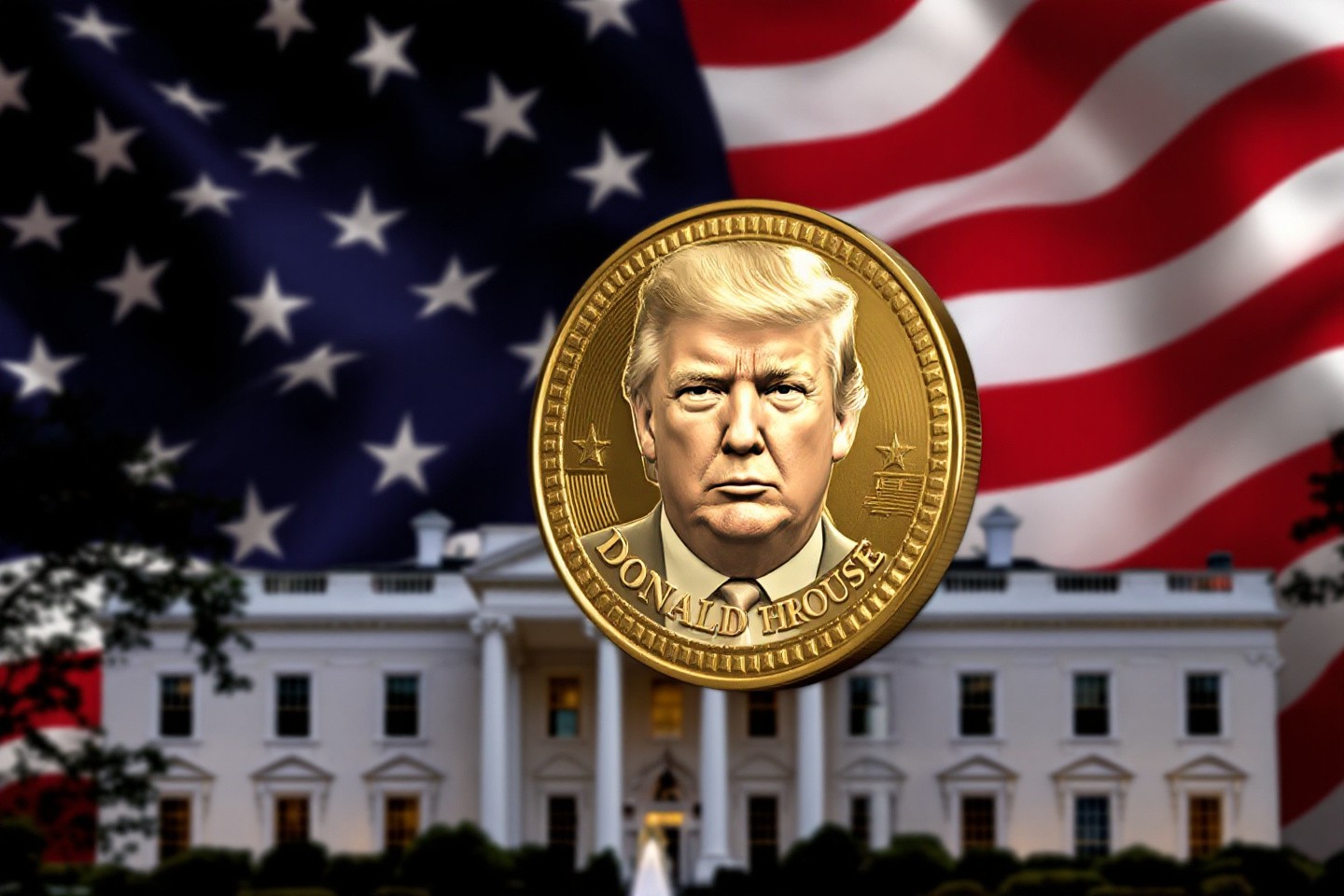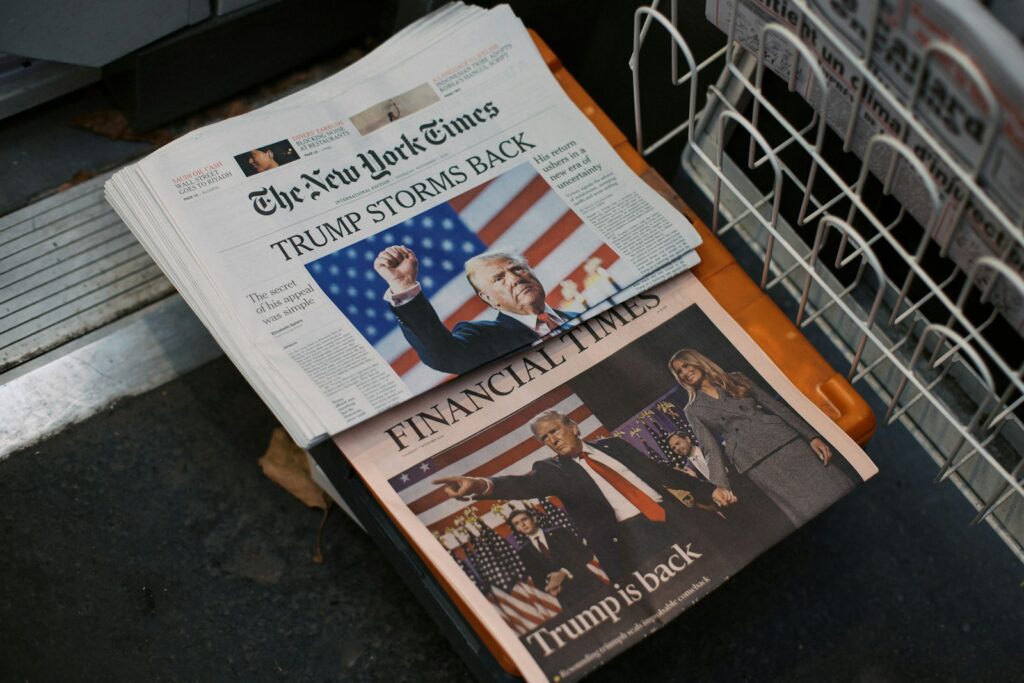
Bill Maher, a leading voice in political commentary and host of HBO’s Real Time, recently crossed a notable political boundary by attending a private dinner with former President Donald Trump. The meeting, arranged by musician Kid Rock, was particularly striking given Maher’s long-standing record of outspoken criticism directed at Trump.
The dinner, far from a routine social engagement, generated immediate reactions across the political spectrum. Maher’s subsequent public account of the encounter surprised many, especially among liberal commentators who had previously aligned with his critical stance.
In his reflections, Maher portrayed the meeting as unexpectedly revealing. He described a version of Trump that diverged from the widely held public perception—offering details about his demeanor, conversational tone, and moments of levity that Maher found disarming. These remarks quickly drew scrutiny. Critics raised concerns about whether such a portrayal risked minimizing behaviors they believe pose serious threats to democratic norms. Others questioned the wisdom of engaging with Trump in such a setting, suggesting that Maher may have underestimated the implications of the meeting.
The episode has since evolved into a broader conversation about political discourse in an era of deep division. Maher’s account not only offered a rare glimpse into a personal interaction with a polarizing figure but also reignited debate over how public figures should navigate dialogue with those they fundamentally oppose.

Bill Maher began his recounting of the dinner by establishing the context. The meeting took place on March 31 and was arranged by musician Kid Rock, a mutual acquaintance of both Maher and Donald Trump. Aware of the attention the encounter attracted, Maher directly addressed public perceptions, dismissing those who treated it “like it was some sort of summit meeting” as “ridiculous.” He minimized the significance of his own role in the event, emphasizing, “I’m a comedian,” and noting that he held “no power” in such a high-level political interaction.
To frame the unusual nature of the meeting, Maher drew a historical comparison, referring to it as “kind of a Nixon to China thing.” The phrase invoked the idea that engagement between longstanding opponents might serve as a symbolic gesture toward broader reconciliation. Although he rejected the notion that he possessed the ability to “heal America,” Maher explained that he felt uniquely positioned for such a conversation.
He reinforced this point by highlighting his credibility as a critic of Trump, stating that “nobody was harder on Trump or more prescient about the fact that he wasn’t going to leave office voluntarily than I was.” This long-standing opposition, in his view, gave weight to the encounter. According to Maher, the motivation behind the meeting stemmed from a shared belief with Kid Rock that “there has to be something better than hurling insults from 3,000 miles away.” His reflections underscored a desire for meaningful dialogue over entrenched division.

The most controversial aspect of Bill Maher’s account of the dinner centered on his portrayal of Donald Trump’s private demeanor. Maher told his audience that the individual he met in person differed markedly from the public figure familiar to Americans through media coverage and social media. He described Trump during the dinner as “gracious and measured.”
This observation sharply contrasted with Maher’s expectations, especially considering Trump’s public remarks made shortly before the meeting. According to Maher, on the night prior to the dinner, Trump had posted hostile commentary online, criticizing the dinner as misguided and attacking Maher personally. “I read it and thought, ‘What a lovely way to welcome someone to your house,’” Maher remarked, with pointed irony.
However, the man he encountered in person did not reflect the persona conveyed through those messages. Maher asserted, “Everything I’ve ever not liked about him was, I swear to God, absent—at least on this night, with this version of the man.” His comments suggested a striking disconnect between Trump’s public image and his private behavior, a distinction that fueled widespread debate over the reliability and implications of such personal encounters.

Among the more unexpected elements of Bill Maher’s account was his observation of Donald Trump’s apparent capacity for genuine laughter and moments of self-awareness. Maher remarked, “Just for starters: he laughs,” adding that he had “never seen him laugh in public.” He emphasized that Trump even laughed at himself, and Maher expressed confidence in its authenticity. “It’s not fake. Believe me, as a comedian of 40 years, I know a fake laugh when I hear it,” he asserted.
Maher recounted that he had even succeeded in making Trump laugh with a joke referencing a “tan suit,” a detail later echoed in a Larry David satire but attributed in this instance to Maher’s own remarks.
Another notable moment occurred during a private tour of the White House. While discussing the 2020 election, Maher claimed that Trump “distinctly used the word ‘lost’” when referencing the outcome. Maher responded with surprise, telling Trump, “Wow, I never thought I’d hear you say that.” According to Maher, Trump remained calm and “didn’t get mad.”
These remarks led Maher to conclude that Trump appeared “much more self-aware than he lets on in public.” This impression challenged the commonly held image of Trump as dismissive and unreflective. According to reports, Kid Rock later remarked that Maher’s “mind was blown” by the encounter, an expression of the extent to which the experience defied his expectations.

Bill Maher offered a notable comparison between his private interaction with Donald Trump and his past experiences with Democratic presidents he had supported. Despite having “voted for Clinton and Obama,” Maher stated unequivocally, “I would never feel comfortable talking to them the way I was able to talk with Donald Trump.” His comment suggested a perceived contrast in approachability and conversational openness between Trump and the Democratic figures he had once endorsed.
Maher presented this personal insight as more than an isolated observation. He remarked, “That’s just how it went down. Make of it what you will,” encouraging broader interpretation. For Maher, the ease of conversation with Trump pointed to a deeper political issue. He argued that this experience was “emblematic of why the Democrats are so unpopular these days,” implying that a lack of perceived authenticity or informality among Democratic leaders may contribute to public disconnection. In contrast, the unexpected accessibility he found in Trump, despite being a vocal critic, appeared to underscore this point.

In contrast to the widespread perception shaped by his consistent public criticism of Donald Trump, Bill Maher revealed that their private dinner conversation revealed areas of policy agreement. He recalled that Trump had posted a message the night before the meeting, describing Maher as “critical of all things Trump.” On his program, Maher directly rejected that characterization, responding, “Not true. Check the tapes.” He then cited multiple instances in which he had publicly supported Trump’s policies.
Among the examples he listed, Maher expressed support for the decision to move the U.S. embassy in Israel to Jerusalem and affirmed the importance of maintaining effective border control. He stated his approval that “the cops are getting their morale back” and argued that “DEI had gone too far.” Maher also agreed with the view that “biological men shouldn’t be playing women’s sports” and endorsed the belief that “Europe should pay for their defense.”
Additionally, Maher supported the position that Arab nations should be responsible for accepting Arab refugees. Referring specifically to the displacement of millions of Syrians to Germany while Saudi Arabia accepted none, he commented that “it makes sense” for regional solutions to regional crises. These points served to illustrate that Maher’s political positions were not defined by categorical opposition, but rather by issue-based judgment, even when it involved figures he frequently criticized.
In attempting to reconcile the stark contrast between the private Donald Trump he encountered and the public figure known for volatility, Bill Maher offered an interpretation centered on the concept of performance. He suggested that Trump’s combative public persona may be a deliberate construction, crafted for media audiences rather than reflecting his authentic self.
Maher articulated this perspective by stating, “A crazy person doesn’t live in the White House. A person who plays a crazy person on TV a lot lives there.” While he acknowledged that consciously adopting such a persona remains troubling, Maher noted that his personal experience with Trump during the dinner shifted his view. He concluded that the reality was “not as alarming as I thought it was,” implying that Trump’s public behavior may be more performative than psychologically indicative.
This assessment did not excuse the implications of Trump’s public conduct, but it did reflect Maher’s evolving understanding of the former president’s motivations and presentation. His remarks added further complexity to an already polarizing subject, prompting renewed debate over authenticity, intention, and the line between media image and reality.

One of the most disorienting moments for Bill Maher came immediately after the dinner concluded. Upon returning home, he turned on the television and was confronted by the public image of Donald Trump, a stark contrast to the individual he had just engaged with for hours. Maher specifically recalled watching a segment on 60 Minutes featuring the former president.
In the broadcast, Trump appeared at a podium in a room Maher recognized from his White House visit. However, the demeanor on screen was markedly different. Maher recounted seeing Trump angrily declare, “Disgusting. You’re a terrible person,” a striking departure from the “gracious and measured” individual he had encountered during their private conversation. The jarring contrast led Maher to question on his show, “Who’s that guy? What happened to Glinda the Good Witch? And why can’t we get the guy I met to be the public guy?” This moment further cemented his perception of a profound duality between Trump’s public performance and private behavior.
Maher’s candid recounting of the dinner ignited swift and varied reactions from media commentators and the public. For critics of the former president, his description of a composed and civil Trump was difficult to reconcile with their established views, prompting reactions that ranged from criticism of Maher himself to humorous skepticism regarding the encounter. The polarized responses underscored the entrenched divisions in American political discourse and the challenge of interpreting personal interactions with polarizing figures through the lens of broader ideological expectations.
This section explores the public reaction to Maher’s remarks, particularly among liberal commentators and audiences. It analyzes their interpretations, concerns, and critiques, offering insight into how political identity shapes perceptions of authenticity, intent, and credibility when private experiences collide with public narratives.

One of the earliest and most pointed criticisms of Bill Maher’s account came from those who believed he had been manipulated by the former president. Substack writer Wajahat Ali quickly responded on X, writing, “Congrats, @billmaher. You got played by Trump. Easy mark. He used you like a fiddle.” This reaction implied that Trump’s behavior during the dinner was not an authentic expression of character but a strategic performance intended to shape Maher’s perception, and by extension, influence his audience.
Ali’s comments suggested a view of Maher as lacking discernment in the face of a highly orchestrated political encounter. The suggestion that he was merely a vehicle for Trump’s messaging rather than an independent participant added weight to broader concerns that the dinner served more as a public relations effort than a substantive dialogue. This perspective contributed to a wider narrative framing the meeting as a political tactic rather than a moment of genuine personal engagement.

Further criticism targeted Bill Maher’s character and the motivations behind his meeting with Donald Trump. Former MSNBC host Keith Olbermann offered a particularly harsh assessment, writing on social media, “BTW don’t overanalyze Maher prostituting himself to Trump.” Olbermann, who stated he has known Maher since 1978, framed the dinner as a calculated move rather than a genuine effort at political engagement.
Referring to their long acquaintance, Olbermann concluded, “He was a shameless opportunist with no real principles then and he remains so.” He further claimed that Maher’s participation in the dinner was driven by professional self-interest, stating, “This is so he can keep his HBO show.” Such commentary suggested that Maher’s motivations were rooted not in bridging divides or pursuing dialogue, but rather in maintaining his relevance and securing his position in the media landscape.

Democratic strategist and Fox News contributor Leslie Marshall expressed skepticism regarding Bill Maher’s motivations for meeting with Donald Trump, characterizing the visit as purely self-serving. Marshall drew parallels to other media personalities who have engaged with Trump following the 2020 election, specifically referencing MSNBC hosts Joe Scarborough and Mika Brzezinski’s visit to Mar-a-Lago, framing such encounters as problematic.
Marshall posed a pointed question to those who regard Trump as a threat to democracy: how could they possibly share a meal with him unless motivated by personal or financial interests? She suggested that considerations related to career advancement or financial gain were likely driving factors behind these meetings. Speaking to Fox News Digital, Marshall proposed a way to evaluate her claim, stating, “We will find out in a few months if this was a poor decision for him based on ratings and subscriptions.”
Beyond reactions from media commentators, Bill Maher encountered disappointment and anger from segments of his traditional audience. The Washington Post published an article capturing this sentiment, titled “Trump charmed Bill Maher. The comedian’s fans don’t find it funny.” The report emphasized the disconnect between Maher’s favorable depiction of Trump in private and the views held by many of his viewers.
The article cited negative responses from Reddit users and social media comments, noting that numerous fans criticized the HBO host for both the meeting and his subsequent remarks. One Oakland-based lawyer interviewed by the Post expressed that Maher showed a lack of empathy toward those adversely affected by Trump’s policies, suggesting that for some, personal interactions could not overshadow the tangible consequences of the former president’s actions. Some viewers even vowed to stop watching Maher’s show, signaling potential real-world repercussions for the comedian.

Washington Post columnist León Krauze elevated the criticism of Bill Maher’s meeting with Donald Trump by framing it within a historical and ethical context. Krauze explicitly stated that Maher “got played” by Trump, echoing earlier criticisms. He further intensified his critique by drawing parallels between Maher’s remarks about being charmed by Trump in private and historical accounts of individuals who expressed admiration for some of the twentieth century’s most notorious dictators.
Krauze referenced figures such as Adolf Hitler, Fidel Castro, Joseph Stalin, and Mao Zedong, noting that those who met these leaders privately often reported being disarmed by their personal demeanor despite the atrocities committed publicly under their regimes. He concluded by warning that Maher’s willingness to meet Trump and publicly share a softened impression complicates efforts to hold the former president accountable. Krauze argued this dynamic “makes the task of holding Trump accountable that much more difficult.”

Criticism of Bill Maher’s dinner with Donald Trump extended beyond social media and opinion articles, surfacing during Maher’s own program. In the “Real Time” panel discussion following Maher’s monologue about the dinner, Washington Post global security analyst Josh Rogin addressed Maher directly, providing a live example of the controversy.
Rogin accused Maher of serving as a “prop” in what he described as Trump’s “public relations stunt.” This critique assigned responsibility to Maher for allowing the meeting to be used for Trump’s benefit rather than fostering a sincere dialogue. The phrase “public relations stunt” implied that the dinner was primarily staged for favorable public perception, with Maher’s favorable account furthering Trump’s agenda.

One of the most distinctive and incisive reactions to Bill Maher’s dinner with Donald Trump came through satire. Larry David, comedian and creator of “Curb Your Enthusiasm,” authored a satirical essay in The New York Times titled “My Dinner With Adolf.” The fictional piece imagines a 1939 dinner with Adolf Hitler, drawing clear parallels to Maher’s account of his dinner with Trump, mirroring many of the same themes.
David’s essay echoed Maher’s acknowledgment of being a vocal critic while still feeling compelled to engage with the “other side,” even if that side had committed grievous acts. The fictional narrator described Hitler as “quite disarming” and boasted about making him laugh, a phenomenon he had “never seen before,” which rendered Hitler “suddenly so human.” The satire highlighted the contrast between the “public Hitler” and the “private Hitler,” leaving the narrator’s “head spinning,” a reaction reminiscent of Kid Rock’s comment that Maher’s mind was blown.
The essay included moments where the narrator contemplates, “We’re not that different, after all,” and Hitler expresses hope he is “no longer the monster you thought I was.” The piece concludes with the narrator stating, “Although we disagree on many issues, it doesn’t mean that we have to hate each other,” before offering Hitler “a Nazi salute and walking out into the night.” The Times’ deputy opinion editor clarified that the essay was inspired by Maher’s discussion and aimed at the concept of “seeing someone for who they really are,” explicitly stating it did not equate Trump with Hitler. While David did not name Maher directly, the essay was widely interpreted as a sharp critique of Maher’s portrayal.
Contrasting views also emerged. Fox News contributor Richard Fowler defended the meeting, stating, “I do not see anything wrong with the meeting.” Fowler cautioned against remaining in a “political silo” and argued that, given the reality that “Republicans control all the levers of power,” engaging Trump directly in an Oval Office conversation was “a conversation worth having,” even if it did not lead to immediate success. He regarded such dialogue as a potentially valuable “tool in the Democratic Party’s toolkit,” while acknowledging that the Democratic base might oppose it. In contrast, MSNBC host Ayman Mohyeldin maintained a critical position, accusing Maher of failing to recognize that Trump was “using him” and contending that Maher’s visit contributed to the “normalization of Trumpism.”
The varied responses to Bill Maher’s dinner with Donald Trump—from allegations of manipulation and opportunism to concerns about normalizing a divisive figure and biting satire—reflect the intense polarization and sensitivities of today’s political environment. Maher’s account of encountering a surprisingly different private persona sparked broader debate on the contrast between public and private identities, the responsibilities of public figures engaging across political divides, and the challenges of finding common ground amid deep opposition. This episode exemplifies how personal interactions with controversial figures can become flashpoints, revealing much about both the subjects and the observers within a highly charged media landscape.




